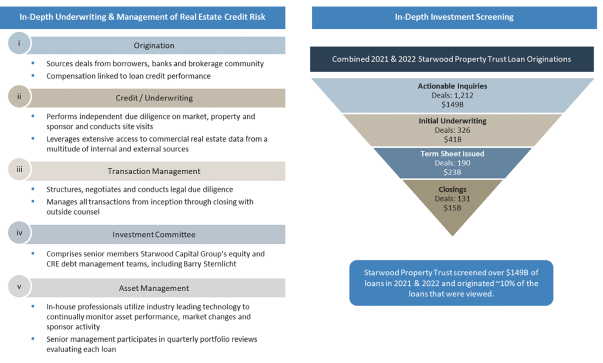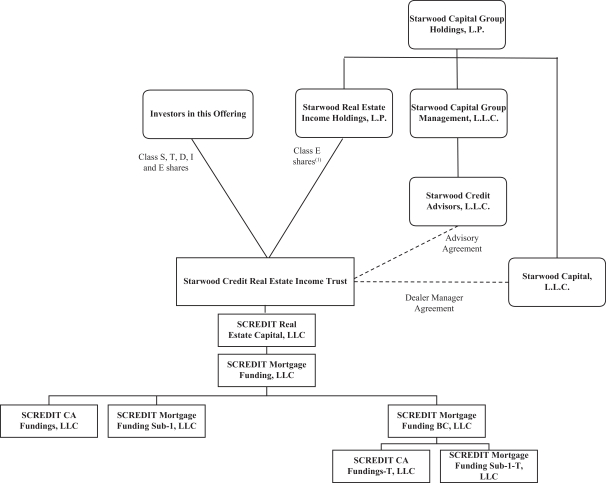Uncertainty with respect to the financial stability of the United States and several countries in the EU could have a significant adverse effect on our business, financial condition and results of operations.
Our investment strategy depends on the CRE industry generally, which in turn depends on broad economic conditions in the United States, Europe, China and elsewhere. Recently, concerns over global economic conditions, energy and commodity prices, geopolitical issues and military conflicts, inflation, Federal Reserve short term rate decisions, actual or perceived instability in the U.S. banking system, foreign exchange rates, the availability and cost of credit, the sovereign debt crisis, the Chinese economy, the U.S. mortgage market and a potentially weakening real estate market in the United States have contributed to increased economic uncertainty and diminished expectations for the global economy. These factors, combined with volatile prices of oil and the potential for declining business and consumer confidence, may precipitate an economic slowdown, as well as cause extreme volatility in security prices. Global economic and political headwinds, along with global market instability and the risk of maturing debt that may have difficulties being refinanced, may continue to cause periodic volatility in the CRE market for some time. Adverse conditions in the CRE industry negatively impact our returns by, among other factors, the tightening of the credit markets, decline in the value of underlying real estate assets, and continuing credit and liquidity concerns, among other potential risks.
Risks Related to Our Investments
Our loans and other investments expose us to risks associated with debt-oriented real estate investments generally.
We seek to invest primarily in debt instruments relating to CRE assets. As such, we are subject to, among other things, risk of defaults by borrowers in paying debt service on outstanding indebtedness and to other impairments of our loans and investments. Any deterioration of real estate fundamentals generally, and in North America, Europe and Australia in particular, could negatively impact our performance by making it more difficult for borrowers of our mortgage loans, or borrower entities, to satisfy their debt payment obligations, increasing the default risk applicable to borrower entities, and/or making it more difficult for us to generate attractive risk-adjusted returns. Changes in general economic conditions will affect the creditworthiness of borrower entities and/or the value of underlying real estate collateral relating to our investments and may include economic and/or market fluctuations, changes in environmental, zoning and other laws, casualty or condemnation losses, regulatory limitations on rents, decreases in property values, changes in the appeal of properties to tenants, changes in supply and demand of real estate products, fluctuations in real estate fundamentals, the financial resources of borrower entities, energy supply shortages, various uninsured or uninsurable risks, natural disasters, pandemics or outbreaks of contagious disease, political events, terrorism and acts of war, outbreak of wars and military conflicts, changes in government regulations, changes in monetary policy, changes in real property tax rates and/or tax credits, changes in operating expenses, changes in interest rates, changes in inflation rates, changes in the availability of debt financing and/or mortgage funds which may render the sale or refinancing of properties difficult or impracticable, increased mortgage defaults, increases in borrowing rates, changes in consumer spending, negative developments in the economy and/or adverse changes in real estate values generally and other factors that are beyond our control. This risk may be magnified in the case of the more recent conflicts between Israel and Hamas, and the ongoing conflict between Russia and Ukraine, due to the significant sanctions and other restrictive actions taken against Russia by the U.S. and other countries, as well as the cessation of all business in Russia by many global companies. In addition, recent concerns about the real estate market, rising interest rates, inflation, energy costs and geopolitical issues have contributed to increased volatility and diminished expectations for the economy and markets going forward.
We cannot predict the degree to which economic conditions generally, and the conditions for real estate debt investing in particular, will improve or decline. Any declines in the performance of the U.S. and global economies or in the real estate debt markets could have a material adverse effect on our business, financial condition, and results of operations.
79

